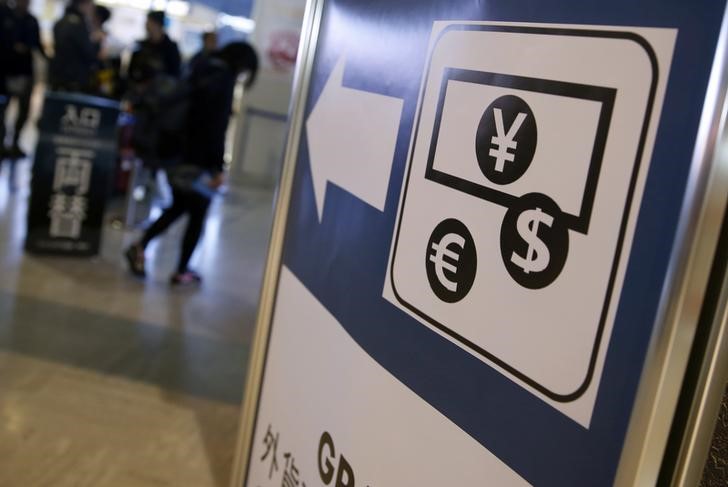(Bloomberg) -- Senior Japanese government officials said they were closely watching currency markets with a sense of urgency Tuesday as they returned to a heightened state of alert following a renewed slide in the yen to fresh two-decade lows.
“It’s important that exchange rates remain stable, and reflect economic fundamentals,” said Finance Minister Shunichi Suzuki speaking to reporters in Tokyo after the yen breached the 132 mark against the dollar earlier in the day. “The government is watching foreign exchange market moves and their impact on the Japanese economy with a sense of urgency.”
Chief government spokesman Hirokazu Matsuno reiterated that stance at his daily press briefing, saying he was looking at the impact on the economy.
Those warnings are likely to continue after Bank of Japan Governor Haruhiko Kuroda, speaking in parliament the same day, continued to insist he will stick with rock-bottom interest rates for the time being. The BOJ’s stance is contributing to the weakness in Japan’s currency as other central banks raise interest rates to tackle inflation.
“The BOJ will persistently continue with the current strong monetary easing and firmly support economic activities,” said Kuroda. “We’re aiming for a virtuous cycle in which prices rise moderately while corporate profits, employment and wages improve.”
The yen weakened further after he reiterated his commitment to sticking with monetary easing and his yield-curve control framework that keeps short-term interest rates below zero and caps yields on 10-year Japanese government debt.
The currency briefly hit 132.75 as Kuroda continued speaking in parliament.
Yen Slides to Two-Decade Low, Reigniting Focus on Intervention
Market speculation is likely to reignite over possible government moves to try and stop the currency’s fall from getting out of hand.
Still, the language used by officials appeared less forthright than the warnings issued by the finance ministry after the BOJ doubled down on easing at the end of April.
A Trader’s Guide to Japanese Policy Makers’ Language on the Yen
The latest flurry of comments follows a roughly month-long period when the yen seemed to stabilize as wider fears over the global economy and markets fanned caution among investors.
During that time, Kuroda has continued to drum home his message that the BOJ is in no mood to budge and that current circumstances represent an unmissable chance for Japan to secure stable inflation.
A ramping up of officials’ language may be required to shake off the impression that the government may be getting more comfortable about the idea of a weaker yen.
©2022 Bloomberg L.P.
